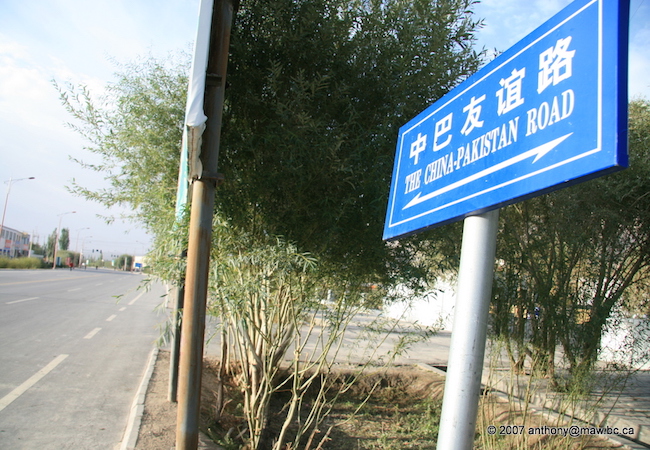
By Syed Hassan Tahir
International politics is witnessing a transitional shift from conventional to economic race. Its outset took place gradually but appeared visible since the end of Cold War. This shift, on the one hand, increased likelihood of greater conflict between emerging giants, but on the other, led to surfacing of fresh avenues for cooperation. Its recent illustration can be seen in South Asia where China is flexing her muscle by constructing economic corridor in Pakistan to reach out to Central Asian states. This mega land-sea project that stretches from Kashgar to Gwadar would provide opportunity to all regional actors to make South Asia an integrated region and also serve as a bridge between South Asian consumer-based economy and central Asian production-based market.
China Pakistan Economic Corridor (CPEC) intersecting all provinces of Pakistan will form a link to Middle East, Europe, Russia and central Asian states. This would provide China relatively shorter route for her energy imports from Middle Eastern region bypassing Straits of Malacca which could be blocked during a war-like situation in South China Sea. Because Chinese major energy requirements are being fulfilled by Middle East, this Silk Road will minimize her current import cost and vulnerabilities unlike through Strait of Malacca which takes almost 45 days to reach any consignment at Chinese port.
CPEC also has the potential of opening up trade doors for Pakistan’s eastern and western neighbors (Afghanistan and India). Because of Pakistan’s geographical stationing, it is costly for both Afghanistan and India to adopt other way for mutual trade. The alternate channel for Indo-Afghan transit trade can be carried out through Iranian Chabahar Port where India is hammering billions of dollars. But that land-sea root would not be cost-effective much as compared to the land-based path through Pakistan. Due to above stated geographical compulsion, all three states (Afghanistan, India and Pakistan) must soften their rigidity in order to abolish long lasting barrier between economic cooperation.
Any economic cooperation and trade activities in South Asia can put unsettled disputes between these states on back burner. Afghanistan, (a landlocked state) with which Pakistan had ups and downs in relations would also get benefit from this project. For it, Islamabad pledged to construct 265 km long Peshawar to Kabul motorway in order to link up Afghanistan with CPEC. This connection will integrate Afghanistan with other regions and also allow her to start commercial activities through Indian Ocean.
India, a major state of South Asia can also extract benefit out of this project by opening up trade channels through Pakistan. Indian aspiration is also to reach out to Afghanistan and Central Asian States to expand access to her markets. But problem dwells here where both key players of South Asia (Pakistan and India) due to their perpetual animosity are reluctant to relax their policies for each other. Since the partition in 1947, the two states have fought four all-out battles along with everlasting covert proxy wars but gained nothing. Any aggressive posturing from India will eventually impede her coveted dream of attaining major power status. Likewise, Pakistan will also lose her path of progress if it doesn’t adopt a restraint in its policy.
The Chinese presence and influence in the form of CPEC will play vital role in keeping away both inherent enemies (Pakistan and India) from plunging in any open war. Chinese trade volume with India is around $70 billion whereas Pakistan is maintaining almost $13 billion of trade. China has announced it would invest as much as US $46 billion in projects in the country but will keep close look over any of Pakistan’s maneuvers. Similarly, India would not be left unchecked, particularly, in regards to her policies toward Pakistan. India with her hawkish attitude will keep on voicing baleful rhetoric against Pakistan but would not be able to directly disturb any economic activity.
The successful completion of CPEC which will be a regional project eventually coerce Pakistan to allow Indian goods pass through Pakistan. Pakistan can also earn money by placing toll on Indian shipment. If CPEC is – as per stipulated spirit – carried out, it will not only benefit Pakistan’s neighbors but also put their long lasting security issues on back burner. This fate-changing project will not only fetch fruits for Pakistan and China but will also serve as a peace broker for any future broader stand-off between South Asian natural enemies (India and Pakistan).




